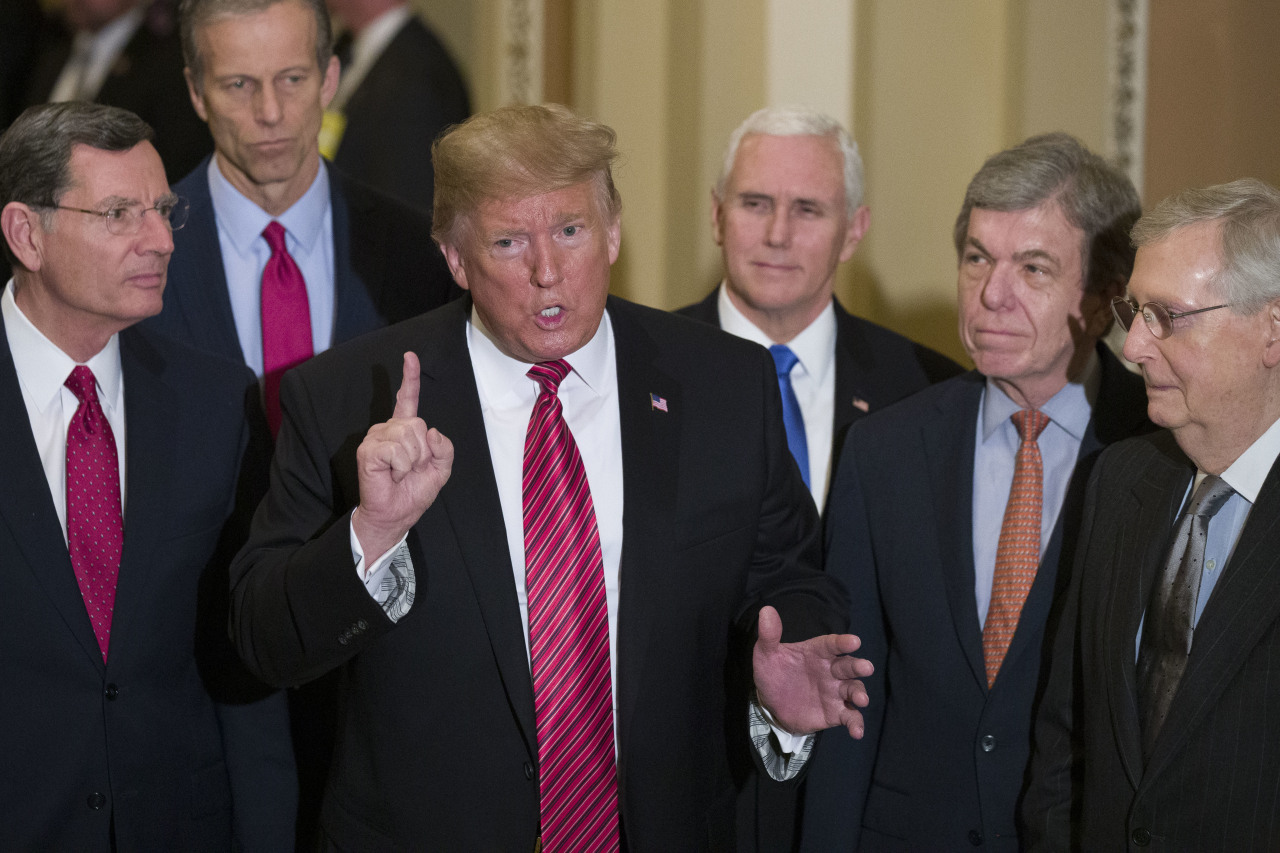Trump says he will 'blow up' Korea-US alliance if reelected: book
By YonhapPublished : July 14, 2021 - 09:36

Former US President Donald Trump had indicated to his close aides that he would "blow up" the US-South Korea alliance in his second term as president, excerpts from an upcoming book showed Tuesday.
The book, "I Alone Can Fix It: Donald J. Trump's Catastrophic Final Year," alleges that Trump also wanted to withdraw the United States from the North Atlantic Treaty Organization (NATO).
"In fact, Trump had privately indicated that he would seek to withdraw from NATO and to blow up the US alliance with South Korea, should he win reelection," says the book, according to excerpts carried by the Washington Post.
The book is co-authored by two Washington Post journalists -- Carol Leonnig and Philip Rucker -- and is set to be published next Tuesday.
"When those alliances had come up in meetings with (then-Defense Secretary Mark) Esper and other top aides, some advisers warned Trump that shredding them before the election would be politically dangerous," they wrote.
"Yeah, the second term, We'll do it in the second term," Trump is quoted as having told his aides.
Trump lost the 2020 election by a large margin of nearly 8 million popular votes, but continues to claim that the election was rigged. Many believe he may run for president again in 2024.
The authors also write that Esper rooted for Biden, instead of Trump, in the 2020 presidential election, partly because of Trump's views on national security and US alliances.
"Esper had worked with Biden and his secretary of state in waiting, Antony Blinken, when he was a senior staffer on the Senate Foreign Relations Committee. He had confidence that they were serious, stable people who cared deeply about shoring up national security," says the book. "Esper couldn't say the same about Trump." (Yonhap)
The book, "I Alone Can Fix It: Donald J. Trump's Catastrophic Final Year," alleges that Trump also wanted to withdraw the United States from the North Atlantic Treaty Organization (NATO).
"In fact, Trump had privately indicated that he would seek to withdraw from NATO and to blow up the US alliance with South Korea, should he win reelection," says the book, according to excerpts carried by the Washington Post.
The book is co-authored by two Washington Post journalists -- Carol Leonnig and Philip Rucker -- and is set to be published next Tuesday.
"When those alliances had come up in meetings with (then-Defense Secretary Mark) Esper and other top aides, some advisers warned Trump that shredding them before the election would be politically dangerous," they wrote.
"Yeah, the second term, We'll do it in the second term," Trump is quoted as having told his aides.
Trump lost the 2020 election by a large margin of nearly 8 million popular votes, but continues to claim that the election was rigged. Many believe he may run for president again in 2024.
The authors also write that Esper rooted for Biden, instead of Trump, in the 2020 presidential election, partly because of Trump's views on national security and US alliances.
"Esper had worked with Biden and his secretary of state in waiting, Antony Blinken, when he was a senior staffer on the Senate Foreign Relations Committee. He had confidence that they were serious, stable people who cared deeply about shoring up national security," says the book. "Esper couldn't say the same about Trump." (Yonhap)








![[Graphic News] More Koreans say they plan long-distance trips this year](http://res.heraldm.com/phpwas/restmb_idxmake.php?idx=644&simg=/content/image/2024/04/17/20240417050828_0.gif&u=)
![[KH Explains] Hyundai's full hybrid edge to pay off amid slow transition to pure EVs](http://res.heraldm.com/phpwas/restmb_idxmake.php?idx=644&simg=/content/image/2024/04/18/20240418050645_0.jpg&u=20240419100350)






![[From the Scene] Monks, Buddhists hail return of remains of Buddhas](http://res.heraldm.com/phpwas/restmb_idxmake.php?idx=652&simg=/content/image/2024/04/19/20240419050617_0.jpg&u=20240419175937)

![[KH Explains] Hyundai's full hybrid edge to pay off amid slow transition to pure EVs](http://res.heraldm.com/phpwas/restmb_idxmake.php?idx=652&simg=/content/image/2024/04/18/20240418050645_0.jpg&u=20240419100350)

![[Today’s K-pop] Illit drops debut single remix](http://res.heraldm.com/phpwas/restmb_idxmake.php?idx=642&simg=/content/image/2024/04/19/20240419050612_0.jpg&u=)